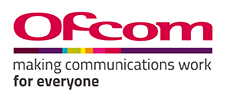Every website allows users to submit their vital and basic details to the database so that their service request can be executed in the shortest time frame. This is a very common practice visible across online business websites. Users fill up a sign-up form and submit their details to the website for further action. We hardly think about the information security and dire consequences occur in case if it’s compromised. Thus, it is quite important for the website owners to introduce new and well-defined web hosting security policies to ensure complete protection of the services and customers’ interests.
A Stringent Security Protocol: There are a number of factors that may affect your server security adversely. A service provider has sole responsibility to analyze and manage the infrastructures as well as identify the security loopholes. If you are using shared hosting service, you must request your service provider to offer you a competent security mechanism with services you buy. The requirement of security firewall goes even bigger if you use VPS hosting or dedicated hosting.
Server Level Security: This is probably the most important aspect of a web hosting service. This is implemented at the server level. Server administrators install numerous software to prevent the deadly and serious attack such as DDOS and information hacking. The server is probably the most vulnerable place from where attackers breach the security using default scripts. A number of applications and firewalls are available to the administrators that help to prevent hackers from accessing your server using open ports and applications. ‘ConfigServer’ firewall is such a Linux application that protects any Linux server.
Code Security: If you are a web development professional, it is very important to use best known coding standards and protocols during the coding. These coding standards and protocols help you to prevent hackers from hijacking your website account. If experts are to be believed, SQL injection is one among the most notorious attacks available so far. Hackers use SQL injection to hack the actual website and the data stored in its database. On various occasions, a website asks for the crucial data such as credit card details, e-mail ID and Bank account numbers etc. This data can be compromised easily due to coding loopholes.
Authentication: To escape the menace of poor website security, web hosting company experts suggest to develop web applications using best available programing languages such as PHP and ASP.Net etc. It is also very important to use SSL certificates on your website to secure the transaction process in the long run. SSL certificate such as ‘VeriSign’ is recommended in the e-commerce based websites. Now the SSL certificates have become the source of incredible mutual trust between users and the websites.
Source by Govind S Kushwah






